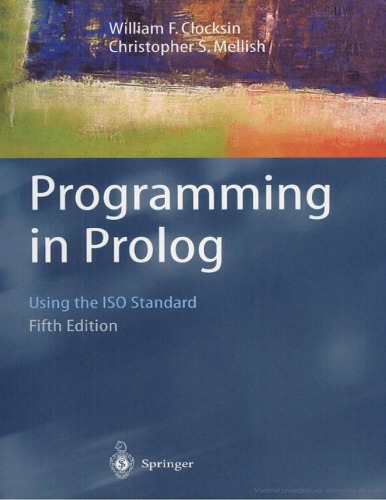

Most ebook files are in PDF format, so you can easily read them using various software such as Foxit Reader or directly on the Google Chrome browser.
Some ebook files are released by publishers in other formats such as .awz, .mobi, .epub, .fb2, etc. You may need to install specific software to read these formats on mobile/PC, such as Calibre.
Please read the tutorial at this link: https://ebookbell.com/faq
We offer FREE conversion to the popular formats you request; however, this may take some time. Therefore, right after payment, please email us, and we will try to provide the service as quickly as possible.
For some exceptional file formats or broken links (if any), please refrain from opening any disputes. Instead, email us first, and we will try to assist within a maximum of 6 hours.
EbookBell Team

4.3
78 reviews
ISBN 10: 3540006788
ISBN 13: 978-3540006787
Author: William Clocksin
Originally published in 1981, this was the first textbook on programming in the Prolog language and is still the definitive introductory text on Prolog. Though many Prolog textbooks have been published since, this one has withstood the test of time because of its comprehensiveness, tutorial approach, and emphasis on general programming applications.
Prolog has continued to attract a great deal of interest in the computer science community, and has turned out to be a basis for an important new generation of programming languages and systems for Artificial Intelligence. Since the previous edition of Programming in Prolog, the language has been standardised by the International Organization for Standardization (ISO) and this book has been updated accordingly. The authors have also introduced some new material, clarified some explanations, corrected a number of minor errors, and removed appendices about Prolog systems that are now obsolete.
Chapter1 : Introduction
Chapter 2: Content
Chapter 3: Conclusion
Chapter 4: Appendices
Chapter 5: Glossary
Chapter 6: References
Chapter 7: Index
logic programming in prolog
game programming in prolog
constraint logic programming in prolog
programming in prolog using the iso standard pdf
differentiate predicate and fact in prolog programming